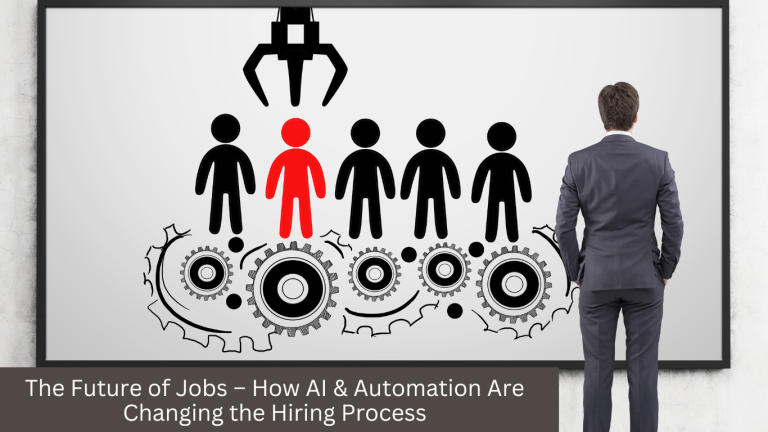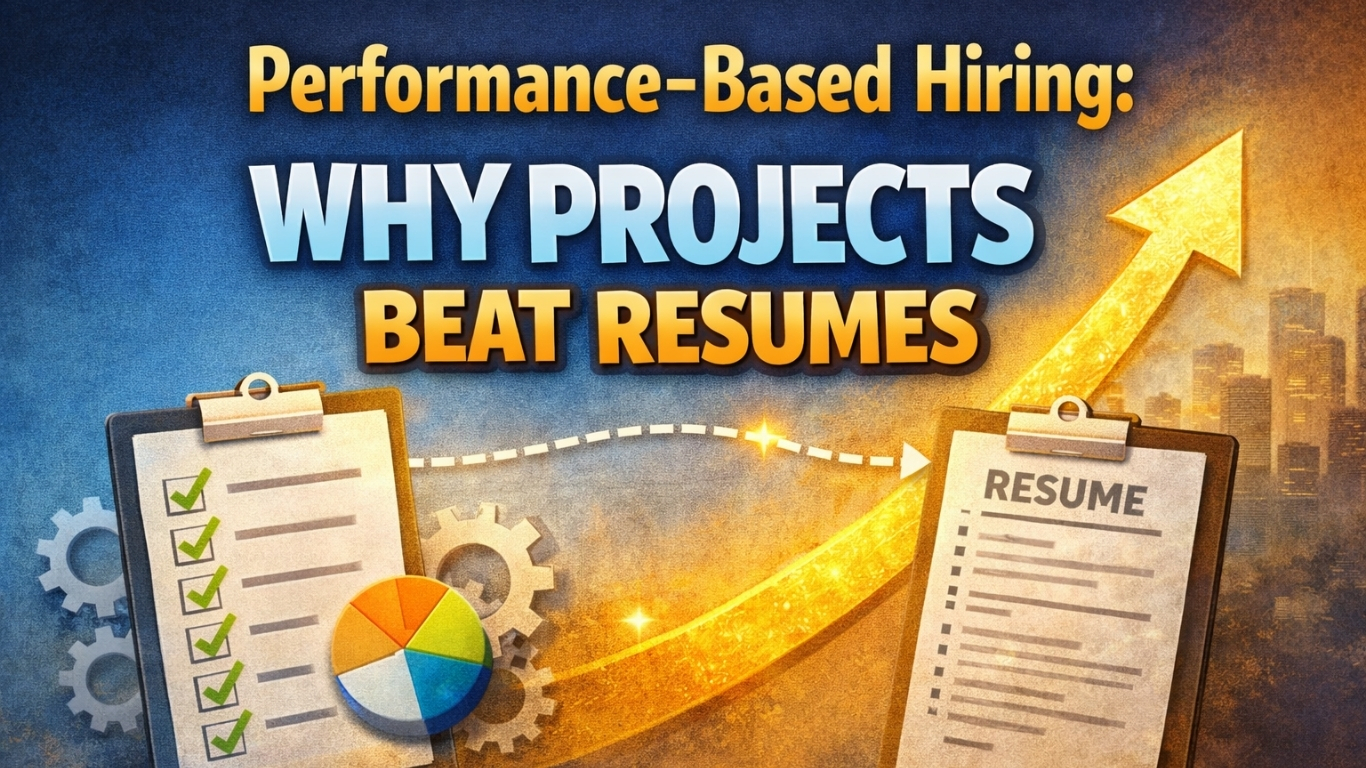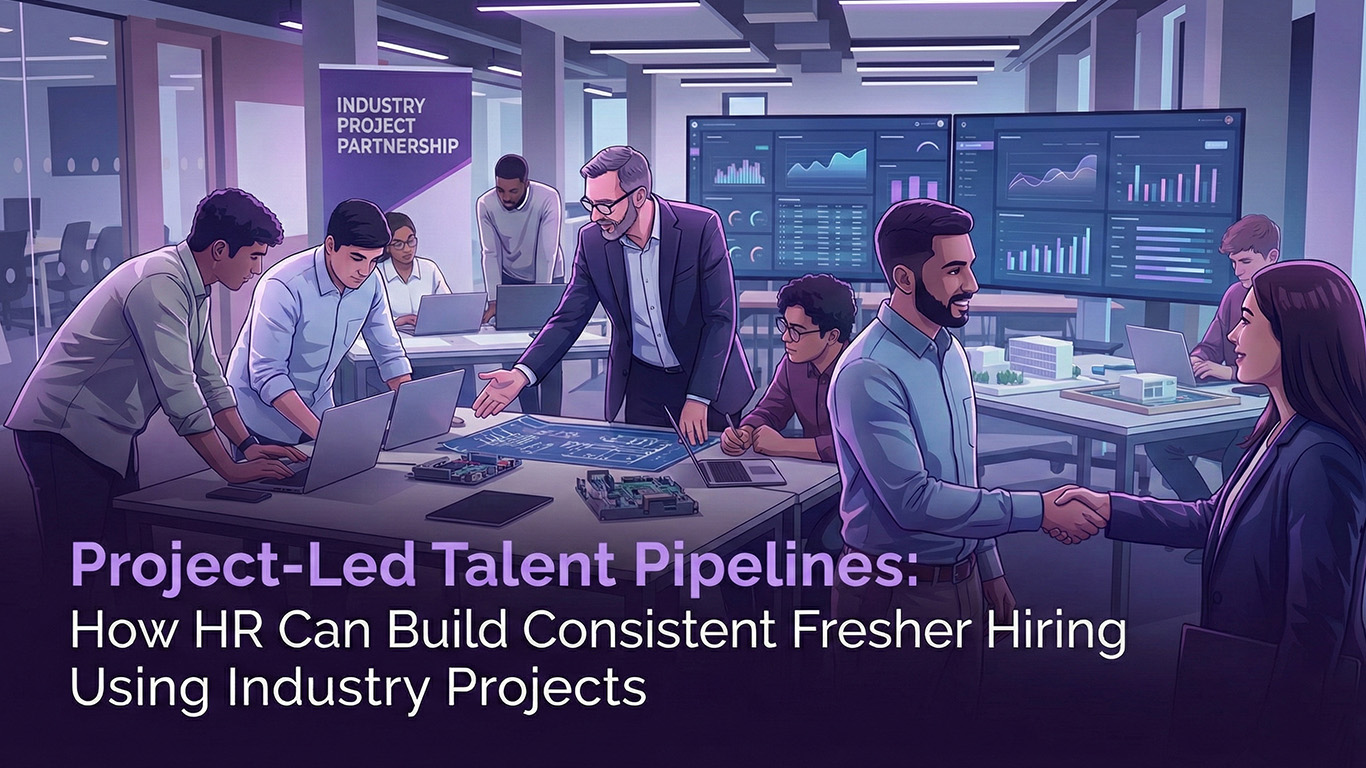Introduction
The future of jobs is undergoing a major shift with the rise of AI and automation. Companies are integrating AI-driven tools to improve efficiency, and the hiring landscape is also adapting to these changes. The future of jobs no longer revolves around traditional roles but is now focused on digital skills and adaptability. As automation continues to evolve, businesses are prioritizing employees who can work alongside technology. Understanding the future of jobs is essential for students to secure meaningful careers in the AI-driven economy. Platforms like Qollabb equip students with real-world experience through industry-focused internships and projects.
How AI & Automation Are Changing Future Of Job Roles
1. Automation Is Replacing Repetitive Tasks
Companies across industries are automating tasks like data entry, customer support, and inventory management. AI-powered bots handle repetitive workflows, allowing employees to focus on strategic roles. This shift is creating demand for professionals who can manage AI systems and oversee automated processes.
2. Growing Demand for AI & Data-Driven Skills
Job opportunities in artificial intelligence, machine learning, and data analytics are rapidly increasing. Employers seek professionals who can analyze data, develop AI models, and enhance automation systems. To stay relevant, students should focus on technical skills such as Python programming, cloud computing, and cybersecurity.
3. The Emergence of Hybrid Job Roles
New job roles require a combination of technical expertise and domain knowledge. Professionals must integrate AI capabilities with business strategies to solve industry-specific challenges. Hybrid job roles in finance, marketing, and healthcare demand a balance between analytical skills and creative problem-solving.
How AI Is Transforming the Hiring Process
1. AI-Driven Resume Screening
Companies use AI-powered tools to filter applications based on relevant skills and keywords. Automated applicant tracking systems (ATS) scan resumes to shortlist candidates efficiently. Job seekers must optimize their resumes with industry-specific keywords to improve visibility.
2. Automated Interviews and Skill Assessments
AI-driven interview platforms assess communication skills, problem-solving ability, and technical expertise. Companies use virtual assessments to evaluate candidates before final interviews. Students should practice AI-based interview formats and skill tests to stay competitive.
3. Predictive Hiring & Talent Analytics
AI helps recruiters analyze candidate profiles and predict job success rates. Data-driven hiring models reduce recruitment bias and improve hiring efficiency. Students should build strong digital portfolios and LinkedIn profiles to enhance their hiring potential.
The Skills Needed to Stay Competitive in the Future of Jobs
1. Digital Literacy and Technical Proficiency
Understanding AI, data analytics, and automation tools is critical for career growth. Companies value employees who can work with AI-powered platforms and adapt to technological advancements.
2. Critical Thinking & Problem-Solving
AI enhances efficiency, but human decision-making remains crucial. Professionals must analyze AI-generated insights and develop innovative solutions to industry challenges.
3. Adaptability & Continuous Learning
Technology evolves rapidly, making continuous learning a necessity. Students should take online courses, earn industry certifications, and engage in hands-on projects to stay ahead.
4. Emotional Intelligence & Soft Skills
AI cannot replace human empathy, leadership, and interpersonal skills. Communication, teamwork, and relationship-building abilities remain essential for professional success.
How Students Can Prepare for the AI-Driven Job Market
1. Gain Hands-On Experience with Industry Projects
Exposure to AI tools and automation technologies through real-world projects enhances job readiness. Students should participate in industry assignments to develop problem-solving and analytical skills.
2. Take AI & Automation-Focused Internships
Internships in AI, machine learning, and automation help students build expertise in emerging technologies. Companies prioritize candidates with practical AI experience in hiring decisions.
3. Build a Strong Online Presence and Network
Engaging with AI professionals on LinkedIn and industry platforms increases career opportunities. A well-structured digital portfolio showcasing AI projects enhances job prospects.
4. Leverage Qollabb for Career Growth
Qollabb provides AI-focused internships and industry-driven projects to help students gain hands-on experience. The platform connects students with industry professionals, equipping them with the necessary skills for AI-driven careers.
Conclusion
The future of jobs is rapidly transforming with AI and automation. Companies seek candidates with technical skills, adaptability, and strategic thinking. Students must prepare by gaining hands-on experience, developing digital skills, and networking with industry professionals. Platforms like Qollabb provide opportunities for students to engage in real-world projects and AI-driven internships.
Call to Action: Stay ahead in the AI-driven job market—explore internships and industry projects on Qollabb today!





